Conference ‘Increasing educational opportunities in the wake of Covid-19’
21 Jun 2021 | Catch-up programmes, Professionals
Covid-19 has an enormous impact on education. This has led to an increased interest in how recent experiences can contribute to a better education in the future. To share experiences and research results, LEARN! and Education Lab organized the conference ‘Increasing educational opportunities in the wake of Covid-19’ on Wednesday June 9th. An afternoon with in total 19 different sessions, 29 speakers and above all many interested attendees.
Anne de Bruijn, Anne Fleur Kortekaas-Rijlaarsdam, Rukiye Turkeli, Martijn Meeter & Melanie Ehren
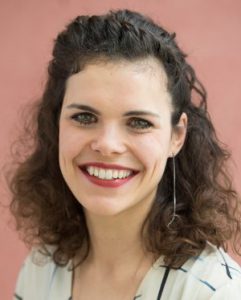
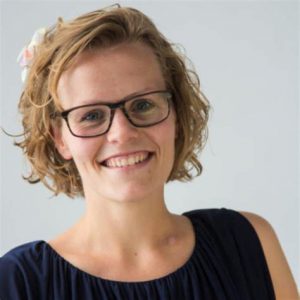
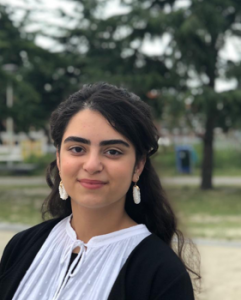
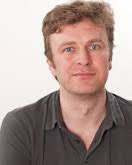
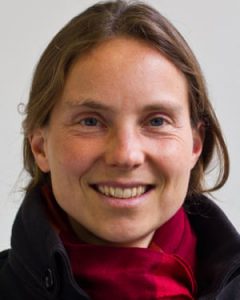
The conference was opened by Jon Kay, Education Endowment Foundation (EEF), with a keynote on the Teaching and Learning Toolkit Jon emphasized that the most successful interventions are a combination of effective cognitive/academic support programmes, high quality of teaching, and broader implementation strategies, for example focusing on social-emotional functioning and wellbeing. His take-home message: “Choosing the right strategy is not enough”. Targeted and focused choices should be made, based on professional expertise, judging the value of the evidence for the specific school context.
The keynote was followed by a short video by Andreas Schleicher. He discussed the effects of Covid-19 on student learning outcomes worldwide, showing that access to online study materials is not the most important explanation for decreased learning development: the quality of education before AND during Covid-19 were equally important explanatory factors. Andreas closed his talk with the important question of why we need a pandemic to make change happen. He pleaded for using our experiences during Covid-19 to make a lasting change together, as teachers, adults, and researchers.
In the following sessions, attendees were offered a choice between a national session, aimed at educational practice, or an international session. Hanke Korpershoek, professor at the University of Groningen, explored in interaction with the audience how to make evidence-informed choices in practice. She specifically focused on choices for the Dutch National Program Education (NPO). During the session it became evident that many schools, school leaders and teachers knew how to find information on the scientific evidence and support of specific programs. Yet, it appeared that this evidence was not clear-cut for all programs. Hanke advises to ask for help: it is difficult to evaluate programs without information or knowledge, so be sure to make use of the expertise of educational scientists, researchers or experts. The session ended with the presentation of a tool to support evidence-informed decision making, presented by Anne de Bruijn and Isil Sincer, both working at the Vrije Universiteit Amsterdam.
Meanwhile, in the international session, a panel discussion took place, in which Kristof de Witte, Megan Kuhfeld, Michael Gratz and Anne Fleur Kortekaas-Rijlaarsdam gave an overview of international practices in catch-up and recovery in their respective countries (Belgium, USA, Switzerland, and The Netherlands); also discussing the opportunities for ‘building back better’. In their pitches, an overview was presented of the increase in funding of education during the pandemic: the Netherlands was one of the biggest risers. A notable common factor was the discussion on the term ‘learning loss’, with a fitting alternative from the USA: “We are not repairing learning loss, but trying to accelerate learning”, according to Megan Kuhfeld.
In the last session before the break, people in the audience were invited to share their thoughts and opinions with the Dutch Onderwijs-OMT represented by Melanie Ehren and Ilja Cornelisz talking about their motives and goals. The audience asked questions on the impact and ambitions of the Onderwijs-OMT and the feasibility of the Dutch National Program Education (NPO) – considering the teacher shortage. The advice of the O-OMT was to follow a two-track policy: addressing acute situations in the short-term while also aiming for structural improvements for the long-term.
In the meantime, Pak Tee Ng gave an keynote on the educational system in Singapore, sharing how their lessons learned can help to shape education during and following Covid-19. He mentioned the enormous increase in the use of technology in education as a consequence of Covid-19, but mostly emphasized the importance of high-quality teachers. He illustrated this with a fitting metaphor: the invention of the microwave oven is magnificent, but if you visit a star restaurant, would you prefer a pizza from the microwave or rather from the wood oven? The focus should not be on technology, but on the chef: the one preparing the food. The chef should know how to best use technology. This also applies to education: technological advancement is important, but high-quality teachers are imperative. The audience agreed with his talk: an attendee: “You hit the nail on the head.”
After the break, the audience had a choice of twelve parallel sessions. Marcela Huepe and Gabriela Cares, working at the National Agency for Educational Quality in Chili, focused on the impact of Covid-19 on Chilean pupils’ social-emotional development and wellbeing.
According to Chris Chang Bacon, in his session ‘Building back better’, Covid-19 shows us that it is possible to change the way we teach, also to use different technologies in education, and that school is not the only location for students to learn. He underlines the importance of looking further than children’s academic needs, by also taking into account their social and emotional needs. During her presentation of the praktijkkaart ‘Extra Classes’, Tijana Breuer emphasized that the similarity between research context and the school environment is crucial for the effectiveness of a program. This translation from research to a true school environment is important and asks for a thorough evaluation of what works, for whom and under which conditions. This evaluation was the key topic in the interactive session on effect evaluation by Anne Fleur Kortekaas-Rijlaarsdam and Roxanne Korthals. Together with the audience, they explored what to evaluate and how: How do you formulate a research question and what constitutes an appropriate control condition? The audience was critical: questioning the need for a control condition; and asking for options to evaluate without randomizing. Five alternative designs were introduced, with concrete advice on how to apply this within the own school.
Martijn Meeter focused on special education, a session in which a lively discussion unfolded surrounding the question why so few special education schools applied for subsidies for catch-up and support programs. Also, a number of experiences were exchanged which seemingly confirmed actual research results: in a sector where personal attention is already the standard, catch-up and support programmes will not make much of a difference.
Karen Wespieser (ParentPing UK) and Anne Tharner (Vrije Universiteit Amsterdam) shared experiences in home schooling and parental well-being during the lockdown in both England and The Netherlands. They reached the conclusion that in both countries parents spent on average 4 hours a day on homeschooling. Also, home schooling increased the amount of time fathers spent with their child(ren), especially in England.
In addition, guidelines on parental engagement (Sanne van Wetten) and teacher professionalisation (Tom Stolp) were introduced. Other sessions focused on the complexity of offering equal opportunities (Tijana Breuer), and differences in effects of school closings between students and schools (Carla Haelermans en Lynn van Vugt). Further, there were sessions on the choices that schools are facing: how to make effective choices (Martijn Meeter) and why it is important to have a theory of change for making these effective choices (Melanie Ehren en Isil Sincer). Also in these sessions the main question was: how to build back better?
The conference was closed with a keynote by Dirk van Damme, focusing on the different ways in which schools around the world changed their education in a response to Covid-19. A central point in his keynote was that most countries were ill-prepared to make changes in the educational system in response to changing circumstances; emphasizing the importance of a flexible educational system.
Looking back, it was an afternoon full of interaction, where teachers, researchers, school leaders and other experts discussed the impact of Covid-19 and the chances and opportunities to invest in better education for all students. To be continued!
Bekijk ook informatie voor:
Meest recente blogs:
Recent Posts
- How LEARN! supports primary and secondary schools in mapping social-emotional functioning and well-being for the school scan of the National Education Program
- Conference ‘Increasing educational opportunities in the wake of Covid-19’
- Educational opportunities in the wake of COVID-19: webinars now available on Youtube
- Homeschooling during the COVID-19 pandemic: Parental experiences, risk and resilience
- Catch-up and support programmes in primary and secondary education
- Home education with adaptive practice software: gains instead of losses?
- A COVID-generation: who are the winners and losers of a disrupted school year? Reflections from the Netherlands.
- Children’s play in the COVID-19 pandemic
- COVID-19: do we need to redefine practices for school inspections?
- Standardized assessments in times of COVID-19: Understanding short and long-term effects
